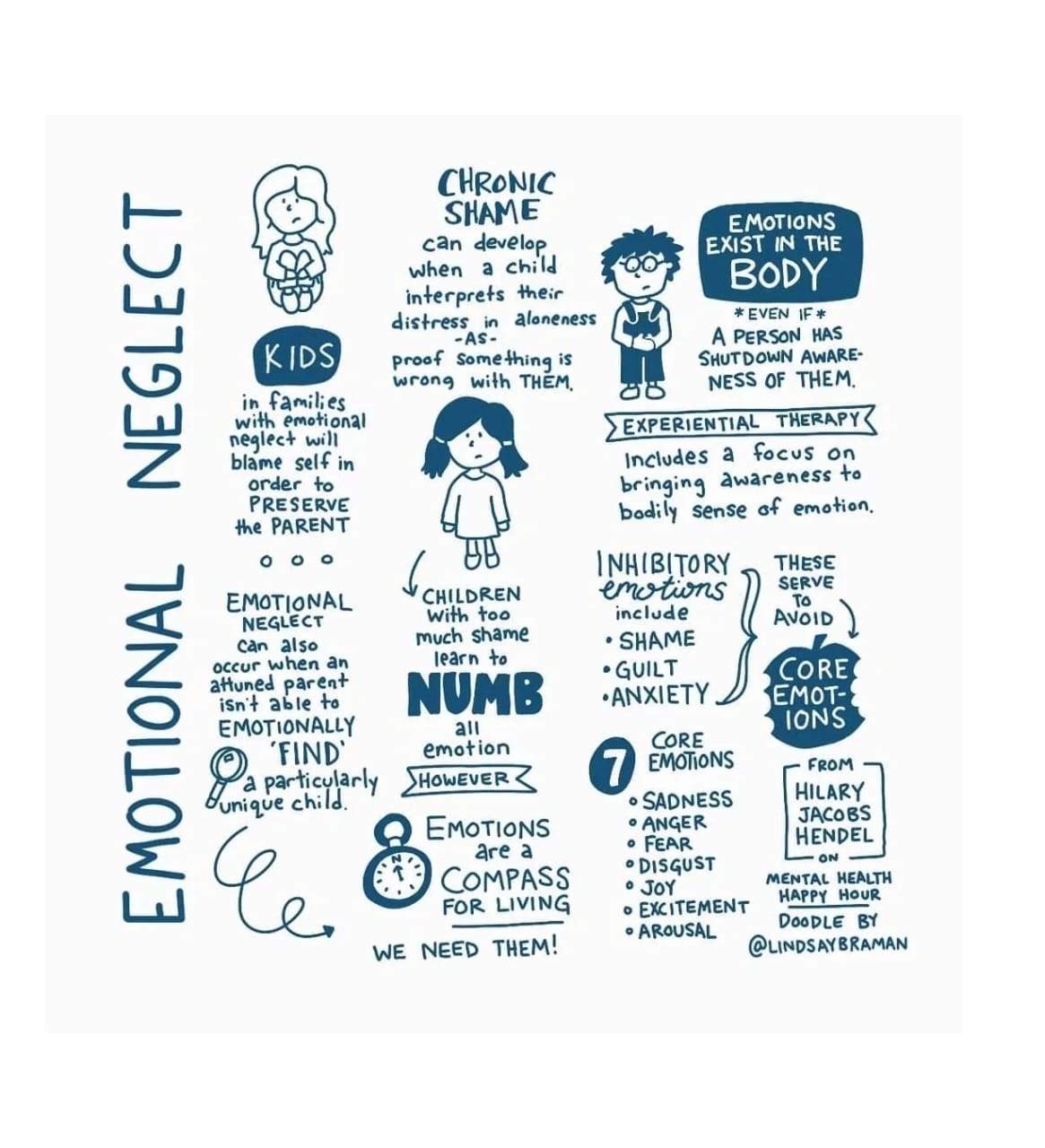The Deeper Impact of Emotional Neglect
It is highly controversial that most of us humans do not understand how to deal with our emotions. Most of us do not even understand what we are feeling, let alone validate & comfort others at times when someone brings a concern or issue to us. It is a very serious problem, considering that emotions are a vital part of our life’s experience.
Emotional Neglect
Threatening, shaming, exploitation, & isolation are all part of emotional abuse. However, there’s another part of emotional abuse that goes a little unnoticed, which is “emotional neglect”, which is a leading cause of chronic unhappiness. To understand it simply, it can be explained as an emotional wound that has been created by what is not done instead of what is done. As with many other psychological issues, emotional neglect occurs due to a dysfunctional childhood.
Emotional neglect can be hard to identify & measure because many parents or caregivers struggle to provide a loving & secure environment for their children when they are dealing with relationship problems, mental health issues, or addiction. Emotional neglect is generally defined as a failure to attend to the child’s emotional needs (e.g, telling them to stop crying).
Now, many of you might be stuck on the question– but what are our emotional needs? Apart from all the physical needs a child demands from their parents. Children are required to feel heard, seen & felt understood. When the child does not feel heard, seen, or felt, it tears their sense of self, feeding them with shame and low self-esteem.
The child starts feeling as if they are wrong or unloved, and this is the child who grows up learning to be blind to their own emotional needs. The child would learn to be scared of emotional needs, maintaining that it is bad to be connected to his/her own or someone else’s emotional needs. It leads the child struggling to navigate healthy intimate relationships in adulthood.
The Extent of the Problem
In various contexts, emotional neglect throughout childhood may go unreported. However, 18% of adults do recall experiencing it. Emotional abuse & neglect of children can occur in any background; however, prevalence rates may be higher in some.
For instance, due to cultural ignorance or lack of acceptance, youth who identify as lesbian, gay, bisexual, or transgender (LGBTQ+) may be more vulnerable to emotional abuse, as well as potentially all forms of violence. As they spend time apart from their families, children from underprivileged social groups—such as child laborers or those uprooted by war or other crises—may become victims of abuse and neglect both within & between families.
Impact in Adulthood
Emotional intimacy is the foundation of healthy & fulfilling relationships, providing a deep connection that goes beyond mere physical or surface-level interactions. It involves sharing one’s authentic self, vulnerabilities, & feelings with a partner, fostering trust, understanding, & a sense of closeness. However, maintaining emotional intimacy can be challenging, particularly for those who have never learned to regulate emotionally & often fear their own emotions.
If you were deprived of your emotional needs in childhood, chances are that you have learned to neglect your emotional needs in adulthood. It can lead you to become codependent in your close relationships (or cope with it by being hyper-independent– both extremes).
Learning to Break the Pattern
We are emotional bodies, & emotional neglect traps us in resistance to our emotions, which is why the only way to break the pattern is to go against them.
Learn to be in touch with your emotions completely, being present with them, & feeling them to the very end. Start noticing your emotions, the way they make you feel, what to do when they come up, & how to express them.
A qualified therapist will surely help you navigate the emotional roller coaster & teach you to be intimate with positive as well as negative emotions completely. Emotional neglect often affects one’s ability to be authentic, which makes it difficult to sustain long-term intimate relationships. Learning to maintain intimacy with ourselves by seeing, hearing, feeling, and embracing all of our thoughts & emotions will help shift our focus towards meeting our own emotional needs & meeting the emotional needs of others.
